- Home
- Aharon Appelfeld
To the Edge of Sorrow Page 3
To the Edge of Sorrow Read online
Page 3
You pick up a book and you are at home, with your parents. The lamp is lit, and you are completely immersed in the book. Papa, a lawyer who represents the famous Singer sewing machine company among others, has just received a new catalogue and is studying it excitedly.
Mama is fixing a late afternoon snack. Dostoevsky’s book fascinates me so much that I don’t hear her voice calling me to come and taste what she’s made. When I finally pry myself away from the book, I want to say, Why did you pluck me away from these amazing scenes?, but I restrain myself so she won’t feel bad.
Salo, our chief medic, who saw his uncle’s stolen home with his own eyes, doesn’t talk about what he saw. His every gesture says, I am doing what I have to do at this time. I must not succumb to grief. One of the wounded, whose bandage Salo changed in the middle of the night, called him “a lover of mankind.” Salo quickly shrugged off that label. “I do my duty. It’s not exceptional.” Once I heard him say, “My uncle Herzig is a hearty man, just like his name, and his house was not only full of lamps but filled with inner light. Now he is a prisoner in one of the camps and who knows if I’ll see him again.”
* * *
—
KAMIL HAS ESTABLISHED a new routine, evenings of study. We are in the land of the Ba’al Shem Tov and his followers. Here he walked, meditated, searched for God, and through his students conveyed his Torah teachings to us, and this is a perfect moment to get to know them.
Once a week we make time for Torah. This new arrangement is not acceptable to everyone. Some have reservations or even object. “If there is a purpose to our being here,” Kamil explains, “it is to become aware of ourselves, of parents and grandparents and their faith. Hopefully we can shake free of fixed opinions and prejudices and open our eyes to see not only what we usually see but also what we are prevented from seeing.”
8
The rains have ended, and it’s possible to sit silently or read a book. Kamil insists on this quiet time. Truth to tell, there’s no reason to insist. People are thirsty for a little quiet and introspection. Danzig, after reading for about an hour, sat up and said, “I used to love to read Stefan Zweig.”
“And now?” wondered Hermann Cohen.
“Now he seems naïve.”
“We’ve grown wiser?”
“We’ve changed, apparently.”
“How so?”
“I have no idea.”
Hermann Cohen is a man of action, and his practicality is obvious in his every move, but he, too, sits in his corner sometimes and reads. Having these books has changed our lives. Even before you dip into one, you feel as though you are in an armchair or in the garden of your home, together with your family or just by yourself.
Danzig didn’t pursue an academic career after graduating from university but went to a provincial town and opened a bookstore. Jews and not only Jews would come to buy or borrow a book, to read the daily paper, or to purchase a periodical. Alongside the shop, he had a room where people would sit and read. It wasn’t a very big store, but it hummed with life. Sometimes arguments broke out, but Danzig’s pleasant manner was enough to calm the atmosphere.
Danzig loved provincial life and the Jews who came to his shop. The older generation were displeased that the young people would congregate there. They feared that their sons and daughters would be attracted to foreign culture.
Now, like everyone, Danzig is disconnected from his family and lives temporarily in these mountains, in the hope that the war will not last long and life will resume as before. Milio will return to his parents, and Danzig to his family. Danzig is so busy raising Milio and training and raiding that he can’t afford to get close to what once was his. I often hear him say, “and nevertheless,” a kind of answer to all those who indulge their despair in private.
Owing to his height and broad shoulders, Danzig is known as “the pillar of the platoon.” During raids, he carries a double load on his shoulders. When we relocate from place to place, he moves most of the equipment. The old people are happy for his help, but his gentle manner is most evident when he carries Milio in his arms, feeds him, and tells him a story.
9
Kamil keeps reminding us that if there’s a rationale for why we fight, it’s to protect the weak who’ve been entrusted to our care. At times we go on raids, but guarding the base is continuous, day and night. To maintain this vigilance, only one squad or, in special cases, two squads go out at a time on raids. We eagerly wait for new fighters to join us, but for now they have yet to arrive.
“We must find the streams to our forgotten reservoir,” Kamil reminds us. This is harder to fulfill than his other commands. The sayings of the Besht, as retold by Martin Buber, undeniably stir the heart, but make no mistake, they are anchored in prayer and the observance of religious law.
“These texts are a regression to dark days,” declares Big Karl, one of the best-loved fighters, who was named for Karl Marx. “We left the ghetto not only to save ourselves but also to break away once and for all from an irrational tradition and to live as free men.”
“Do we also want to cut ourselves off from our parents and grandparents?” demands another fighter.
“From their beliefs, yes.”
Karl is a superior squad leader. A squad under his command feels his power, and it’s easy to follow him. When he speaks of his beliefs, you can feel the inner engine that governs his existence. He’s a second-generation communist, a true believer. Not by chance did Kamil choose him as a fellow commander.
Kamil, to his credit, is very tolerant. He knows that some of the fighters are loyal communists, and some are active in the leftist Bund and Shomer Hatza’ir. Their time in the ghetto and the forests has changed them but not their beliefs. To satisfy those who disagree with him, we read poems by Heine or Rilke, or chapters from Dostoevsky’s Crime and Punishment.
* * *
—
THE RAIN, DAMPNESS, and cold have worsened. Several sacks of flour have grown moldy, a serious setback. At one time Kamil planned to raid military camps scattered in the foothills and to liberate and absorb the thousands of prisoners who remain in the work camps. Kamil believes that five thousand fighters could change the course of the war. The wetlands are ideal territory for partisan warfare. Fighters from here could undermine the self-confidence of an entire army.
For now nothing has come of all these plans. We are increasingly engaged with day-to-day existence: reinforcing the tents, struggling against wetness and hostile patrols. The fear that a long stay in the mountains would diminish our resolve was unfounded.
The unit is consolidated, the fighters devoted to the weaker members. Differences of opinion have not led to a rift. Moreover, our daily routine is strictly organized. Everyone agrees that without mental work the unit can become demoralized. Depression is one of our toughest enemies. A person thinks of his father and mother, his brothers and sisters, how they were snatched in sudden aktions—such a memory strikes like a bolt of lightning.
At first he doesn’t feel the pain, but slowly the images penetrate his body, and depression soon blackens his vision. The fighter, who only an hour earlier was ready and willing, collapses as if an unbearable load has been placed on his shoulders.
When a person falls into depression, the others cautiously try to talk to him, heart to heart. Sometimes the right word revives him, but usually words are unable to free him from the snare of despair.
One of the fighters once sank into a depression so deep it seemed he was finished. All attempts to speak to him failed. His face grew grayer by the hour, and he was on the edge of collapse. Finally, one of the fighters approached and, in a voice not his own, said to him, “In the name of your mother and father, I ask you to get out of the darkness you’ve plunged into; we cannot permit ourselves such a loss. Your father and mother ask us to protect the widows and orphans. Depression is the invention of the devil, who
tugs us away from the truth and seeks to defeat us from within.” Miraculously, the words that this fighter mined from his soul took the man out of his depression, and he stood on his feet.
But success does not always smile on us. There are two fighters in our unit who suffer from prolonged depression. We keep a very close eye on them, never leaving them alone, and when we go on raids they are never in the rear.
Kamil, who is himself prone to moodiness, speaks from time to time about foul humors and depression, which impede decisive action. One must shake them off, defy them, and thwart the schemes of Satan.
“We have a great mission at this hour, to rescue the Jews from the talons of the foe and ourselves from despair. The world is filled with evil and wickedness and anarchy, but we, thank God, have not fallen into that trap. We will do everything that God has called upon us to do. The Ten Commandments are engraved in our hearts to guide us.” It’s scary to be around Kamil when he talks about our mission in this world. His eyes blaze, he grows taller, and he looks like one of the giants of generations past.
10
The rains limit our movement, but we’re not just sitting around. Patrols and ambushes continue every night. Progress into the forest is slow but at a steady pace. If, as it now appears, we’ll be staying here for the winter, we’ll have to build bunkers. The winter here is fierce and merciless.
Our meals are regular: morning, noon, and evening. The food is limited but tasty, and on Friday nights we sit up late and sing: folk songs and songs of the Bund and youth movements.
Ever since we brought the books and candlesticks, the spice box and Jewish National Fund box, these Sabbath evenings are different. We see our homes in a new light. True, in most cases Sabbath candles were not lit, but when we visited our grandparents, we saw how bound they were to the God of their ancestors.
As one of the fighters has remarked, we appear to need distance in order to see what we had not seen. Karl is willing to admit that the Sabbath is an excellent Jewish invention. Sabbath removes us from capitalist slavery, and that’s good enough. Any mystical component only damages this noble idea.
It now becomes increasingly clear that the controversies that raged on the Jewish street only a year ago had missed the point. No one imagined what lay in wait for us at every turn. Everyone was certain in his opinion, but no one, apart from a few pessimists, saw what was obvious. One comrade has warned us: “Don’t bring any ideas from there. This territory will not tolerate them. Let’s stick to what we now see and hear.”
* * *
—
THERE’S NO DOUBT that music is good for us. Music, as opposed to speech, elevates the purest part of ourselves, does not sharpen differences but heals them. Folk songs and workers’ songs blend together and instill the sense that life is not arbitrary, indifferent, or evil. Melody lifts you on its wings and takes you back to childhood. This sweetness revives the body, but one mustn’t become addicted. The enemy lies in wait for the opportune moment; he is wily and patient and will not let a single one of us get away.
Not long ago we saw from a distance a unit of Ukrainian gendarmes chasing after a Jewish child who had escaped. The boy was quick and managed to dart into a cornfield and hide there. The German commander did not give up. He brought in more Ukrainian gendarmes, who surrounded the cornfield completely.
In the end, they caught the boy and dragged him off by his arms like a hunted animal.
When Jews are involved, even elderly gendarmes turn into fighters. We stood helplessly, shaking with fury; we were too few to come to the boy’s rescue.
* * *
—
IT HAPPENS SOMETIMES that after a night of singing someone will stand up and speak exactly as his parents did, with the same words and intonation, as if again being the son of his father and mother.
Melodies lead to mysteries. And so, as I said, one must not become addicted. It’s better to chop down trees, reinforce the tent walls, clean the weapons. Activity is preferable to introspection. After an active day, a person drops onto his pallet of twigs and falls asleep.
In the past, my dreams were often full of color. Now I throw myself onto the twigs and I sleep, disconnected from everything that was once mine. When my shift comes, they wake me and I go on guard duty or patrol.
In Kamil’s tent a lamp is always burning. When he doesn’t go on a raid, he sleeps with the squad that’s on call. Truth to tell, he almost never sleeps. Sometimes he naps for an hour or two. He’ll allow himself this only if Felix is nearby.
After a night of action without casualties, everyone is happy, especially Salo. But the medical equipment is running low. We boil the bandages for repeated use, but the iodine and other disinfectants are almost gone. There is a pharmacy in one of the big villages, about ten miles from here, that had belonged to Jews. If it turns out that this pharmacy is active, we won’t hesitate to raid it, Kamil promises. One of the patrols has come very near that village but was unable to ascertain whether the pharmacy was manned and functioning. The village grocery is open, the coal depot is still in business, and there’s also a flour mill that is inoperative during the fall. All of these had been owned by Jews.
Kamil and Felix have mulled this over more than once, but not enough information has been collected yet about the village, its defenders, and their weapons; Kamil would like to capture one of the farmers so he can tell us about the village and the Germans. But as of now that idea has not been carried out.
11
Our unit has a great treasure: Grandma Tsirl. She’s ninety-three years old and weighs about as much as a ten-year-old girl, but her memory is as long as her life. The fighters constructed a sedan chair to carry her from place to place. She knows things that no one else in the group knows: the laws of Sabbath and the festivals, the laws between man and man, the laws between man and God, and of course the prayers. Moreover, she remembers the ancestors of each one of us.
Tsirl does not intervene in our activities, but if someone comes with a question, she will answer—not at length, but as necessary. She revealed to Kamil things he did not know: His grandfather’s pharmacy was open on the Sabbath and festivals. He did not observe religious law and did not go to the synagogue. But in matters of charity he was scrupulous. The poor got medicine from him for free, and if a poor person needed a medical specialist, he would take him to Vienna or Prague. He was well-off but not wealthy. The poor, especially the sick ones, were welcome guests at the pharmacy. He himself, not his assistants, took care of them. When he died, there was no funeral, since he had instructed that his body be cremated outside the city. The poor and the sick came to that dreadful ceremony and stood crying for hours.
Kamil was astounded. He had never been told about the cremation. Tsirl, who generally does not interpret things, said, “Don’t be shocked, my son; your grandfather wished to replace all the commandments with one commandment, which he observed with enormous devotion. One must not cast blame.”
Kamil treats Grandma Tsirl with respect. When he takes time off from his many activities, he comes to sit with her. Everyone feels that she is connected to worlds we have no access to.
“My sons and daughters were gathered unto their forefathers, and I was left as a survivor. It got all mixed up; they are in the World to Come, and I’m in this world.” Grandma Tsirl states this fact but does not complain. Sometimes she’s sorry to be burdening us and depriving young people of food. The boy Michael also likes to sit with her. She tells him about her childhood in the village, about her parents who were farmers and strictly tithed their crop. Emperor Franz Josef would sometimes ride through town in his carriage, and Jews and non-Jews would stand at the roadside and wave.
Michael once asked her if she can see his parents.
“Why do you ask, my dear?”
“I miss them.”
“If you miss them, it means they are thinking about you and will surely appear to
you soon.”
Most people dream; Grandma Tsirl has waking visions. Not everything she sees is uplifting. About a month ago, in the middle of the night, she asked to wake up Kamil and told him that she had just seen the wicked ones, as she called our enemies, drawing nearer to us.
Kamil did not doubt or hesitate. In a matter of minutes the camp split into three and prepared to counterattack. In under an hour their patrol was caught in a trap we had set for them. Two of them were killed, leaving us a fine haul: two automatic rifles, grenades, and many bullets.
When Kamil came to thank Grandma Tsirl, she said to him, “I’m not the one to thank. I’m nothing. What God shows me, I see.”
Although everyone loves Grandma Tsirl, not everyone believes her visions. They say she has a telepathic sense, but that one mustn’t rely on what she imagines. We have to know the facts, weigh them, and draw conclusions. Anyone who relies on telepathy makes blindness into a guide.
Grandma Tsirl knows that not everyone relies on her visions, and more than once she’s been heard to say, “Why does God show me visions that I don’t know how to convey to others?”
Most of the day she sits in her sedan chair and looks around, or naps, or blesses the wonders that surround her. If she sees visions that offer hope or a moral lesson, she tells us. About the bad ones she says, “Dreams mean nothing.”
We look at her and connect with the lives we left behind. She calls me “my boy.” Once she told me that in her youth my mother had been beautiful and all the male students wanted her, but she chose my father because he was quiet and not pompous. “Don’t worry, my boy; your good forefathers are watching over you.” Ever since she told me that, I see my grandfather Meir Yosef at night.

 Long Summer Nights
Long Summer Nights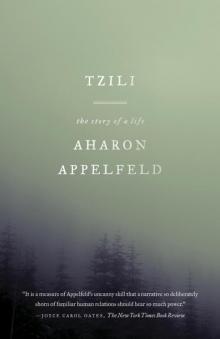 Tzili
Tzili The Conversion
The Conversion The Iron Tracks
The Iron Tracks All Whom I Have Loved
All Whom I Have Loved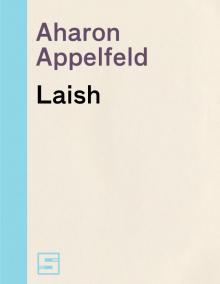 Laish
Laish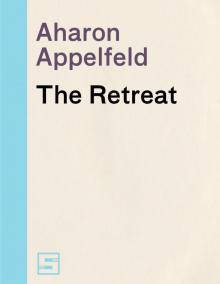 The Retreat
The Retreat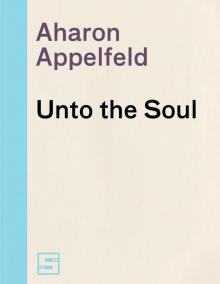 Unto the Soul
Unto the Soul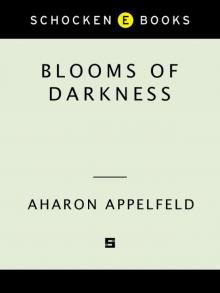 Blooms of Darkness
Blooms of Darkness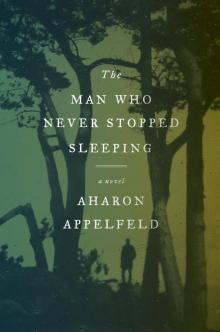 The Man Who Never Stopped Sleeping
The Man Who Never Stopped Sleeping Katerina
Katerina Until the Dawn's Light
Until the Dawn's Light Adam and Thomas
Adam and Thomas Suddenly, Love
Suddenly, Love